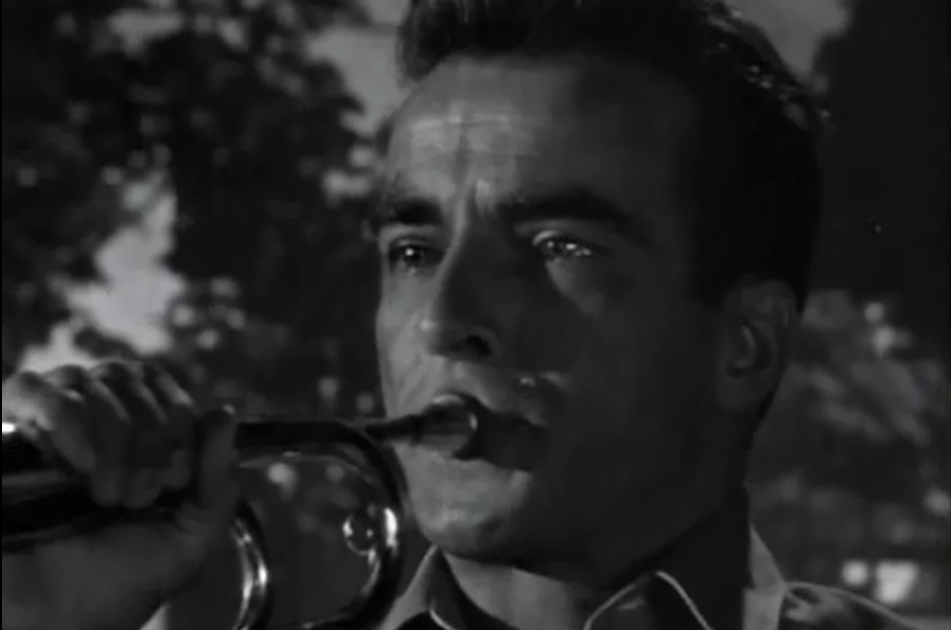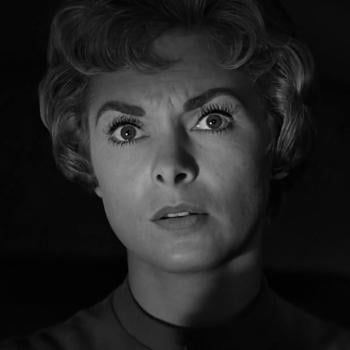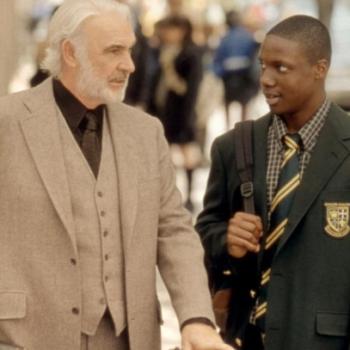
I enjoy a wide variety of films, but there are a select few that genuinely altered the way I interact with the medium.
After my first viewing of Fred Zinneman’s 1953 Best Picture winning film, From Here to Eternity, I remembered having the unique experience of feeling deep emotion but recognizing that I lacked the vocabulary to accurately describe why. This was no doubt one of the many compounding factors that compelled me to begin my formal academic study of film as a whole. Even upon several rewatches across several years, there are still facets of this movie that I don’t feel equipped to explain, but with a hopefully more mature hindsight, I’d like to take a moment and dissect some components of this movie that are especially relevant to those trying to live in a disheartening world with their morals intact.

From Here to Eternity follows the lives of various soldiers and civilians stationed at the Hawaiian military base in the weeks leading up to the bombing of Pearl Harbor. There are two main storylines in this film that sometimes interact. The film gets its iconic money shot of Burt Lancaster and Debora Kerr embracing on in the waves from Sgt. Warden’s plotline. But the story I’m most interested in for this piece follows the character of Robert E. Lee Prewitt.
“Prew” transfers to Schofield barracks after accidentally blinding a fellow soldier in his last unit during a recreational boxing tournament. Prewitt vows never to harm anyone in this way again, which already makes him something of an irregularity in an institution built to turn men into fighting guns. But his resolve is tested even further by his new captain, Dana Holmes, who attempts to pressure Prew into joining their unit’s boxing regiment, believing that a victory here will increase his chances for a promotion. Holmes doesn’t take kindly to Prew’s non-compliance, and he sets the entire infrastructure of his unit against “Prew” to force him into joining the boxing tournament.
.jpg)
This scenario may feel familiar to followers of Christ. Following their religious and spiritual pursuits in a fallen world at times asks that disciples perform certain acts and abstain from others in a way that runs contrary to the way the world. Sometimes even the act of believing is itself almost an act of defiance. The pressure to compromise one’s principles in order to escape scrutiny, mockery, or even physical threat can lead one to turn their back on holy truths. Certainly in a world that hosts many different communities and ways of living, there is a necessity to learn how to cooperate with people who do not live the way you live or believe what you believe, but it can be easy to forget that it is possible to coexist with others without betraying one’s lived truth.
The irony of this setup is on full display in this film. Prewitt is bullied for purportedly betraying the army by soldiers who do not themselves emulate what it is the army stands for. There is a lack of love for one’s fellow man among many of the soldiers within this unit. Despite this pressure from others within the army, Prewitt embodies what the army is supposed to stand for better than any of them. He is motivated not by violence, pride, or power, but by virtues. Eventually, this opposition meets a breaking point when Prew kills a corrupt sergeant who directly contributed to the death of his friend and fellow soldier and then goes AWOL.

This is all taking place against the backdrop of a swath of humanity that is always searching for escape. You see this in Prew’s romance with “Lorene,” a hostess at a social club (a literal prostitute in the novel) who dallies in her racy lifestyle hoping it will fund her big break into respectable high society. Many of the characters are like this, trying to find a sense of control in a disappointing world. They try to bend the rules to work in their favor, but this amounts to nothing. All this hoping and loving and pining is all rendered irrelevant when the bombs fall on Pearl Harbor, an event that will plunge the country into a world war that will fundamentally change the fabric of the country forever. A world in which boxing tournaments and night clubs feel petty.
When Prew tries returning after the attack, he is mistaken for the enemy and gunned down. And joining in a long line of martyrs killed for their beliefs, including the original martyr, Prewitt is needlessly killed by the army that did not deserve him. And yet I’m not convinced that Prew’s fate is ultimately worse than that of any of the other characters. Even though his decision to return to the army costs him his life, unlike every other character in this film, his actions are in line with his beliefs, and this grants him some measure of peace.
Movies like this remind us that in a cruel world, there is little that we can actually control, including whether we live or die. The only thing we can control is whether we live by our principles.












